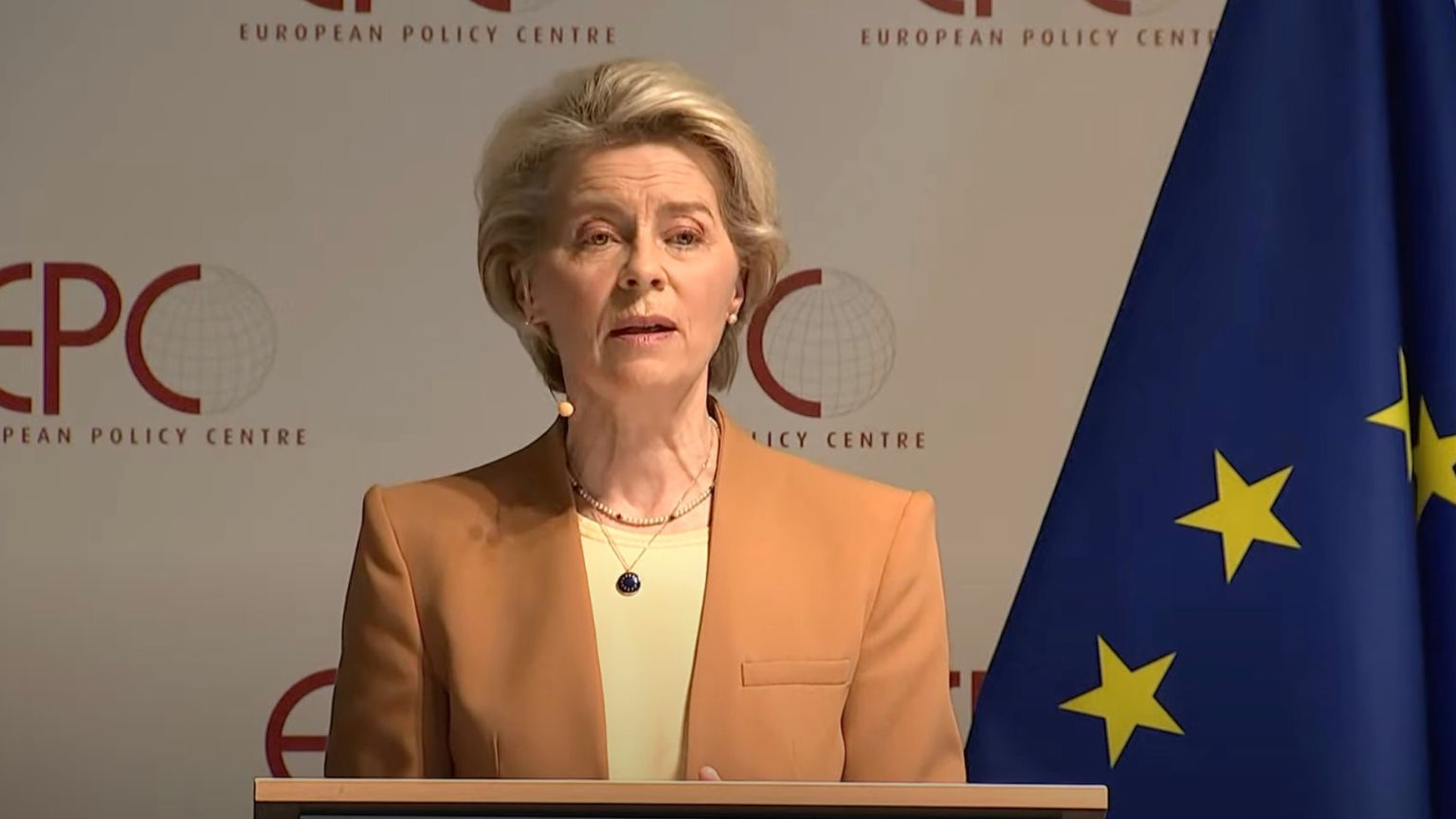by Didi Rankovic, Reclaim The Net:
 During the State of the European Union.
During the State of the European Union.
EU Commission President Ursula von der Leyen can add another issue that she allegedly has no capacity to properly understand, as far as critics of her works are concerned: this time, the digital age.
What caused this latest round of bafflement regarding the EU Commission’s stance was Leyen’s midweek address to the European Parliament, titled, “State of the European Union.”
TRUTH LIVES on at https://sgtreport.tv/
Well, some members (MEPs) of that parliament, not least Germany’s digital security and privacy advocate and MEP Patrick Breyer, don’t think the state of the EU is particularly healthy, given Von der Leyen’s remarks.
She at once praised what is known among opponents as EU’s censorship bills (Digital Services Act, Digital Markets Act), that have already been adopted, and had something to share – though this critic thinks not positive – about upcoming EU legislation, that’s supposed to deal with artificial intelligence.
The EU calls it the “AI Act” – and Von der Leyen said that an “expert group” would be formed to deal with this proposal.
Breyer, who represents his country’s “branch” of the Pirate Party, and is a lawyer, did not spare criticism of his compatriot currently at the helm of the EU Commission.
In short, Breyer seems to be impatient to see her term in office over soon, but warns that Von der Leyen has managed to do a good deal of harm while there.
And that, according to him, happened as she “uncritically cheers digitization, wants to burn our data in the profit interest of industry, and simply did not understand the digital age.”
This, according to the MEP, regularly translated into “unethical legislative proposals (…) trampling on the fundamental rights of EU citizens.”
That’s fairly serious criticism, and Breyer further explains it by citing the Digital Services Act as Von der Leyen (or rather, the EU institution of which she is currently the figurehead) giving – albeit not literally – a “blessing to the surveillance capitalism of the tech industry.”
“The fact that she now wants to let representatives of these corporations help shape Europe’s (EU’s) future in the area of Artificial Intelligence fits in well with the picture,” Breyer is convinced. “With her proposal for an AI Act, she wants to open the door to biometric mass surveillance in public.”
In further comments, this MEP goes on to cut deep.
“On the one hand, Ms. von der Leyen keeps official text messages with the head of Pfizer about billion-dollar deals secret bypassing all rules, but on the other hand she wants to have our private messages indiscriminately scanned by unreliable suspicion machines via #ChatControl and destroy the digital secrecy of correspondence.”
Being a fellow German, Breyer is likely to know Von der Leyen’s policy history better than most of us on the outside, and his “verdict” is not kind. The MEP recalls that, “with an emotional fear campaign, she tried years ago to push through an ineffective and harmful internet censorship law, ignoring mass protests and criticism from academia. In 2015, she voted in the Bundestag (German parliament) to reintroduce blanket data retention, even though the European Court of Justice had ruled it disproportionate.”



